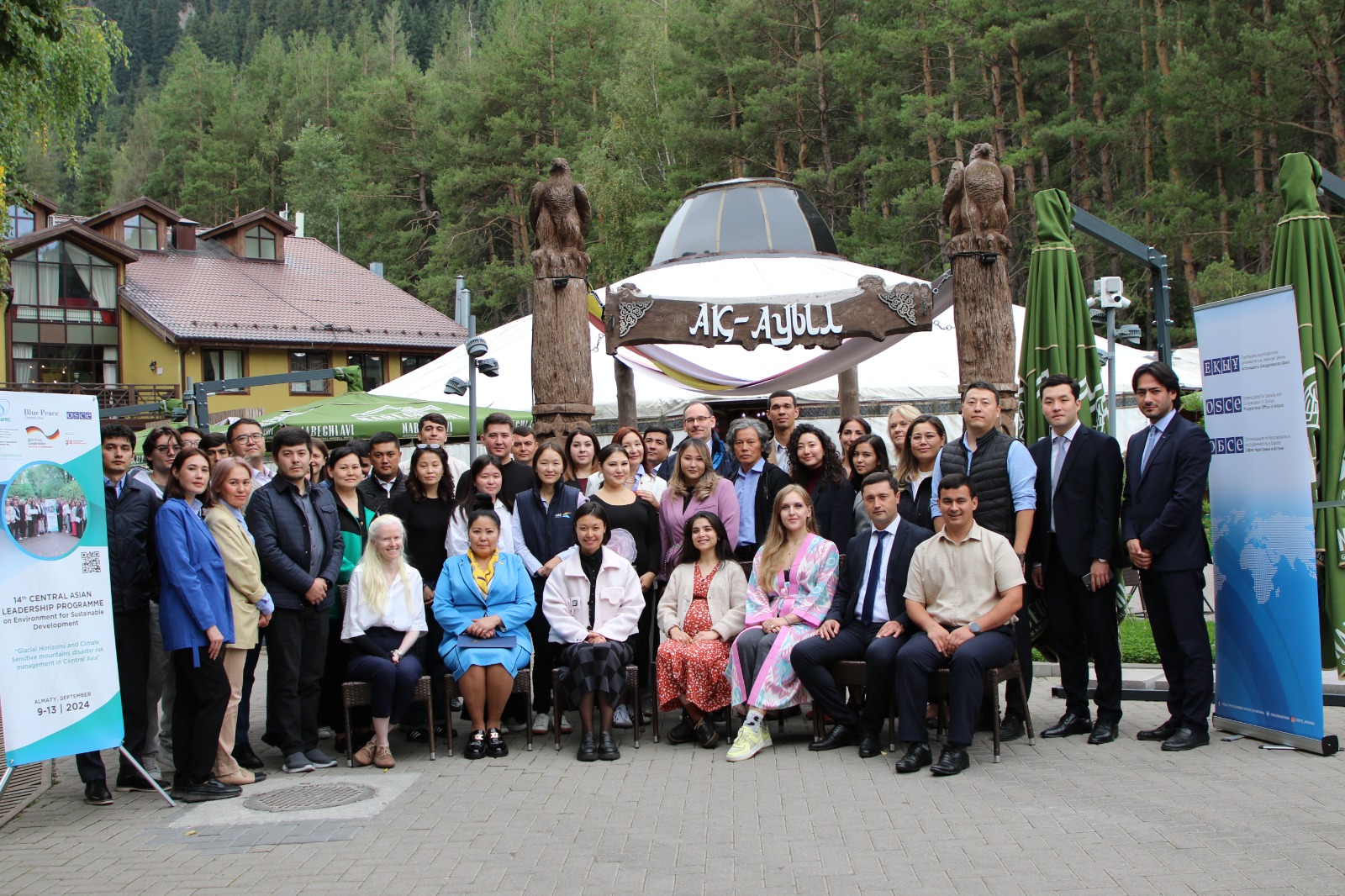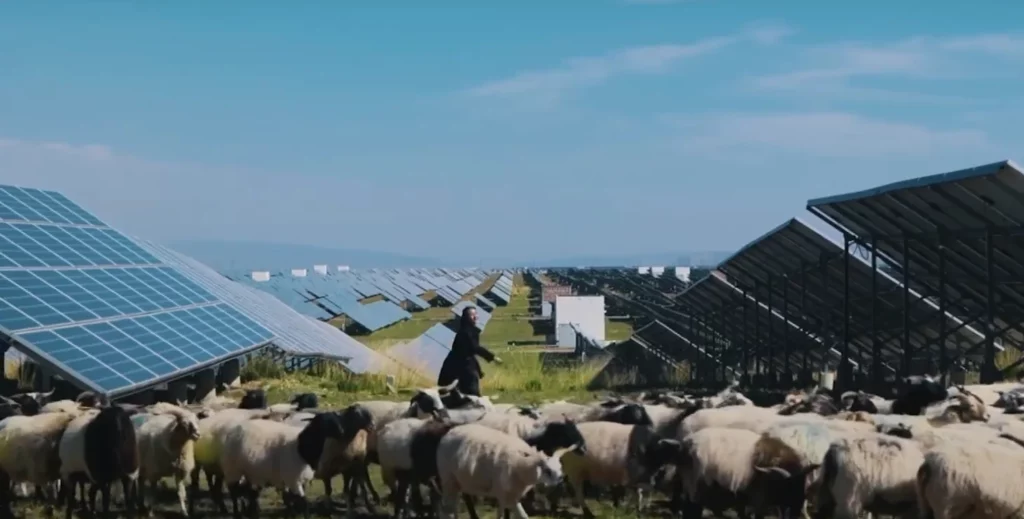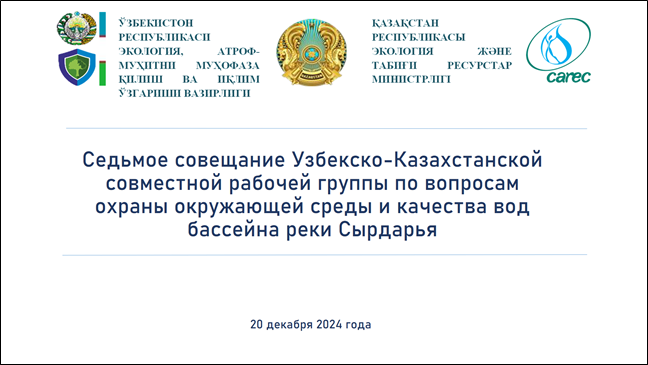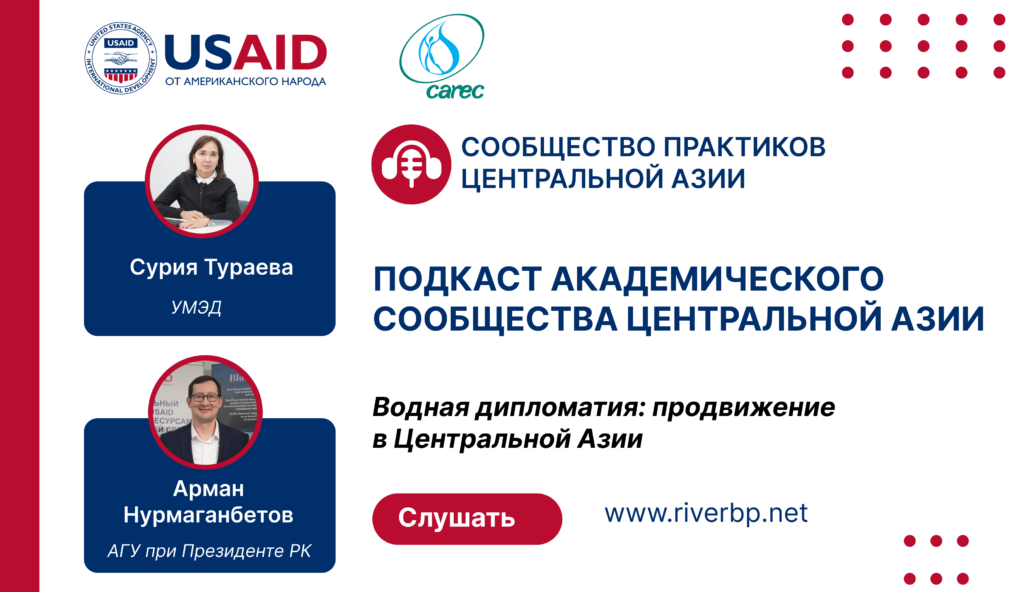
The 14th Central Asian Leadership Program on Environment for Sustainable Development (CALP) was held in Almaty, Kazakhstan from September 9-13, 2024. This annual event, organized by the Regional Environmental Center of Central Asia (CAREC), brought together participants from five countries in the region. The program brought together young leaders, government officials, representatives of international organizations and experts to discuss the environmental challenges facing Central Asia.
The main topics of the program
The central theme of the program was “Glacial Horizons and Climate- Sensitive Mountain Disaster Risk Management in Central Asia”. During the week, participants discussed a wide range of topics including glacier melting, water management, climate change and developing strategies for disaster risk reduction in mountainous areas.
The program was intense and included:
Lectures and presentations by leading experts;
Thematic sessions on water diplomacy, sustainable natural resource management and gender aspects in ecology;
Field trips, where participants could see in practice how disaster risk management and mountain ecosystem protection issues are addressed in Kazakhstan.
Key moments of the week
The opening of the event included welcoming speeches from representatives of international organizations and Kazakhstani authorities. Among them were:
Zulfiya Suleimenova, Special Representative of the President of the Republic of Kazakhstan for International Environmental Cooperation;
Dr. Volker Frobart, Head of the OSCE Programme Office in Astana;
Ashanti Bleisch, Regional Specialist on Water Infrastructure and Climate Change from the Swiss Agency for Development and Cooperation.
Each presentation emphasized the importance of regional cooperation in natural resource management and climate change adaptation.
Water cooperation and climate risk management
One of the central days of the program was the “Water Day” dedicated to water cooperation and water resources management. Experts from OSCE and other international organizations presented their reports, emphasizing the importance of water diplomacy and sustainable water resources management in the region.
Considerable attention was also paid to gender aspects in natural resources management. It was discussed how involvement of women in decision-making processes helps to improve efficiency of water and land management.
Field work and practice
On September 12, the program participants went on field trips to the mountainous areas of Almaty. They visited key sites such as Kazselezaschita and the Big Almaty Lake, where they were able to visualize the effects of climate change and practical measures to prevent natural disasters such as debris flows and avalanches.
Experts demonstrated how Kazakhstan uses advanced technologies and infrastructure to manage water flows and protect the population from natural disasters.
Final Day and Closing Ceremony
The final day was dedicated to the interactive game NEXUS, during which participants developed strategies for managing natural resources in the face of climate change. The game provided a unique opportunity to combine the knowledge gained during the week and put it into practice in a simulated situation.
The closing ceremony was the final point of the program, where the participants were presented with certificates of participation. Zafar Makhmudov, Executive Director of CAREC, as well as representatives of the OSCE and the Swiss Agency for Development and Cooperation made welcoming speeches. The participants expressed their gratitude for the opportunity to be part of the program and noted that CALP provided them with valuable knowledge and skills that they will be able to apply in their own countries.
Outcomes and Future
The 14th Central Asia Leadership Program confirmed its significance as an important platform for youth leadership development and strengthening regional cooperation on sustainable development issues. The participants of the program expressed their willingness to apply the acquired knowledge in practice to solve environmental problems of their countries and the region as a whole.
Additional information:
Valeria Orlova, Manager of the “Education for Sustainable Development” program CAREC, esd@carececo.com



